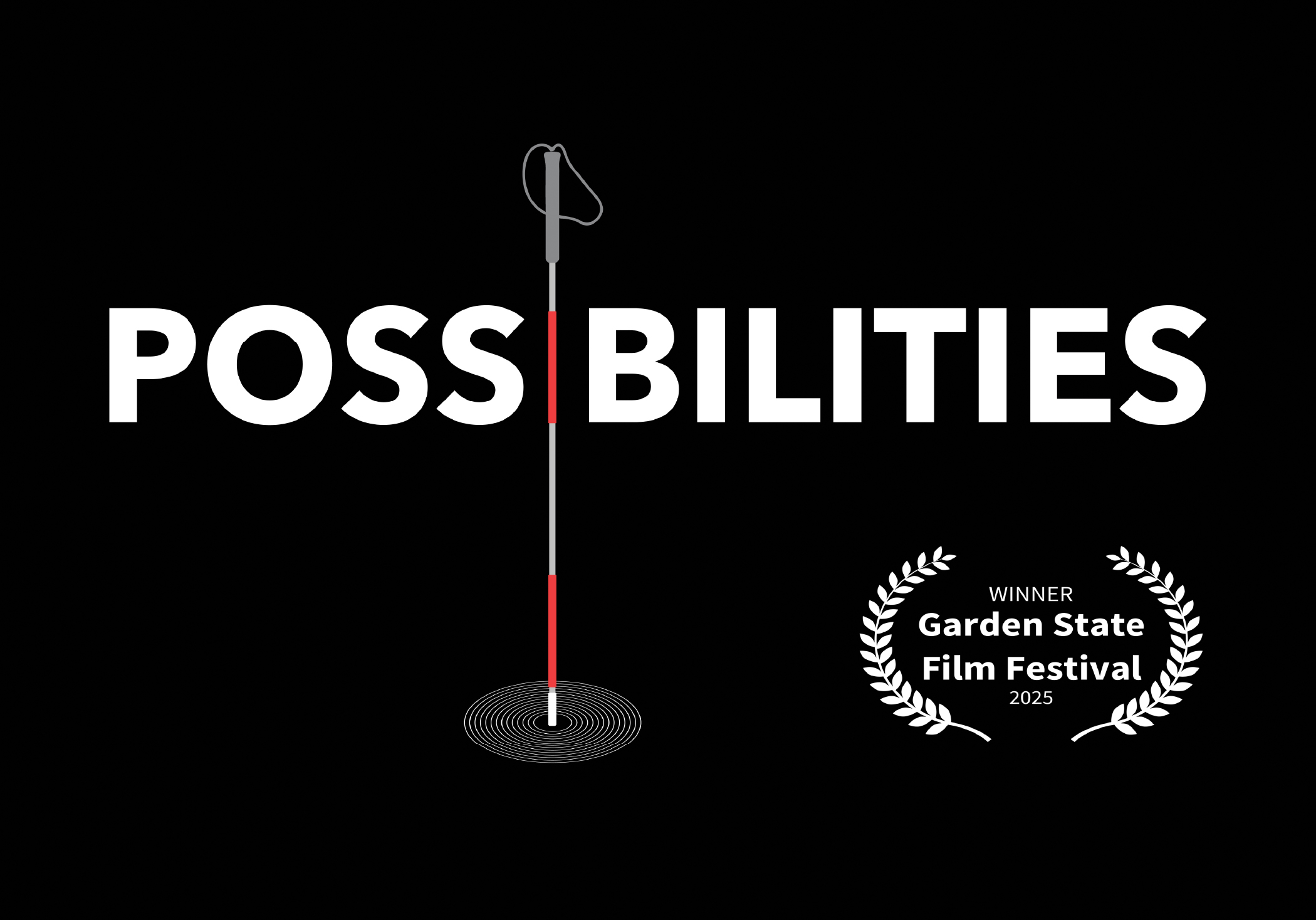FOCUS on AFB: Spring 2025
Focal Point
Celebrating Echoes from the Past
Ninety years after a time capsule was placed into the cornerstone of AFB’s headquarters, friends of AFB gathered at the site to hear powerful messages that were almost lost to time.
On December 5, 1934, AFB held a ceremony to place the cornerstone at 15 W. 16th Street in Manhattan. The location served as AFB’s main office for over six decades. When AFB moved its offices to New York’s Penn Plaza in 1997, the location of the time capsule was unclear.
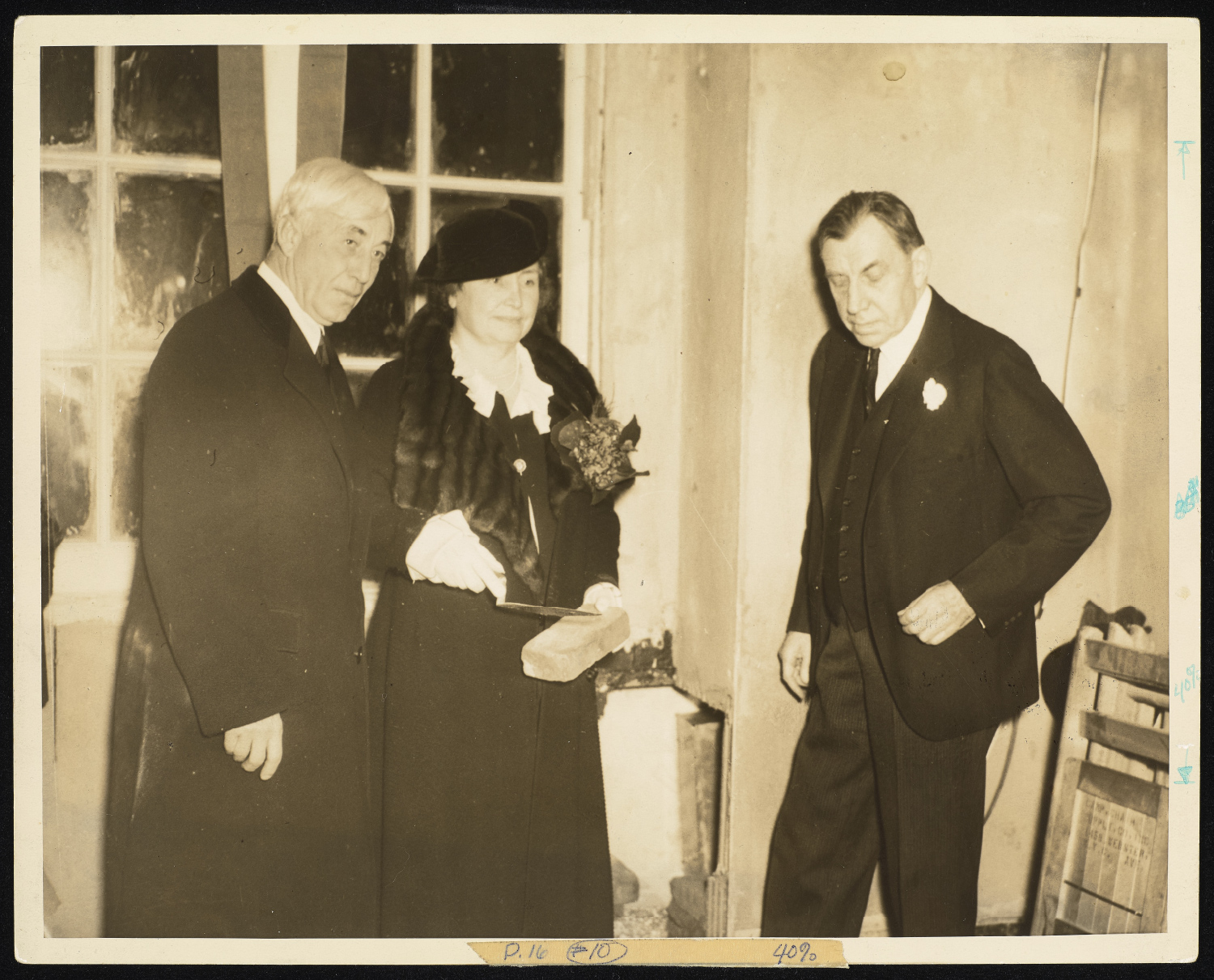
Among the time capsule’s contents were two silver disc records, with instructions on how to restore and play them. After several years of painstaking restoration, the American Printing House for the Blind (APH), which serves as stewards for the AFB and Helen Keller Archives, retrieved and digitized the recordings with remarkable clarity.
“We’re greatly indebted to APH for capturing these voices from long ago, one being the voice of Helen Keller with a message for her best friend Anne Sullivan Macy,” said Tony Stephens, assistant vice president for communications at AFB. “These echoes of the past from AFB’s early leaders are just as relevant now for the blindness community as they were nine decades ago.”
This event was made possible by New York’s Center for Jewish History, which now occupies the space. They graciously welcomed AFB and APH to the site of the cornerstone to share the recordings with the world. AFB thanked the Center with a framed reproduction of a letter Keller sent to Adolph Hitler in 1933, condemning the human rights violations taking place in Germany -- a reminder of Keller’s advocacy on wide-ranging global matters.
To learn more about the AFB time capsule, watch an event livestream, and listen to the recovered recordings, visit www.afb.org/TimeCapsule.
AFB Spotlight
New AFB Report Offers Roadmap for AI
AFB’s Public Policy and Research Institute recently released the first in a series of studies examining the impact artificial intelligence (AI) will have on people with disabilities. The study brought together leading experts in the field to gain consensus on top issues, and presents guidance that industry, disability advocates, and government can leverage to ensure the rapidly changing landscape can expand access and inclusion of people with disabilities while avoiding harm.
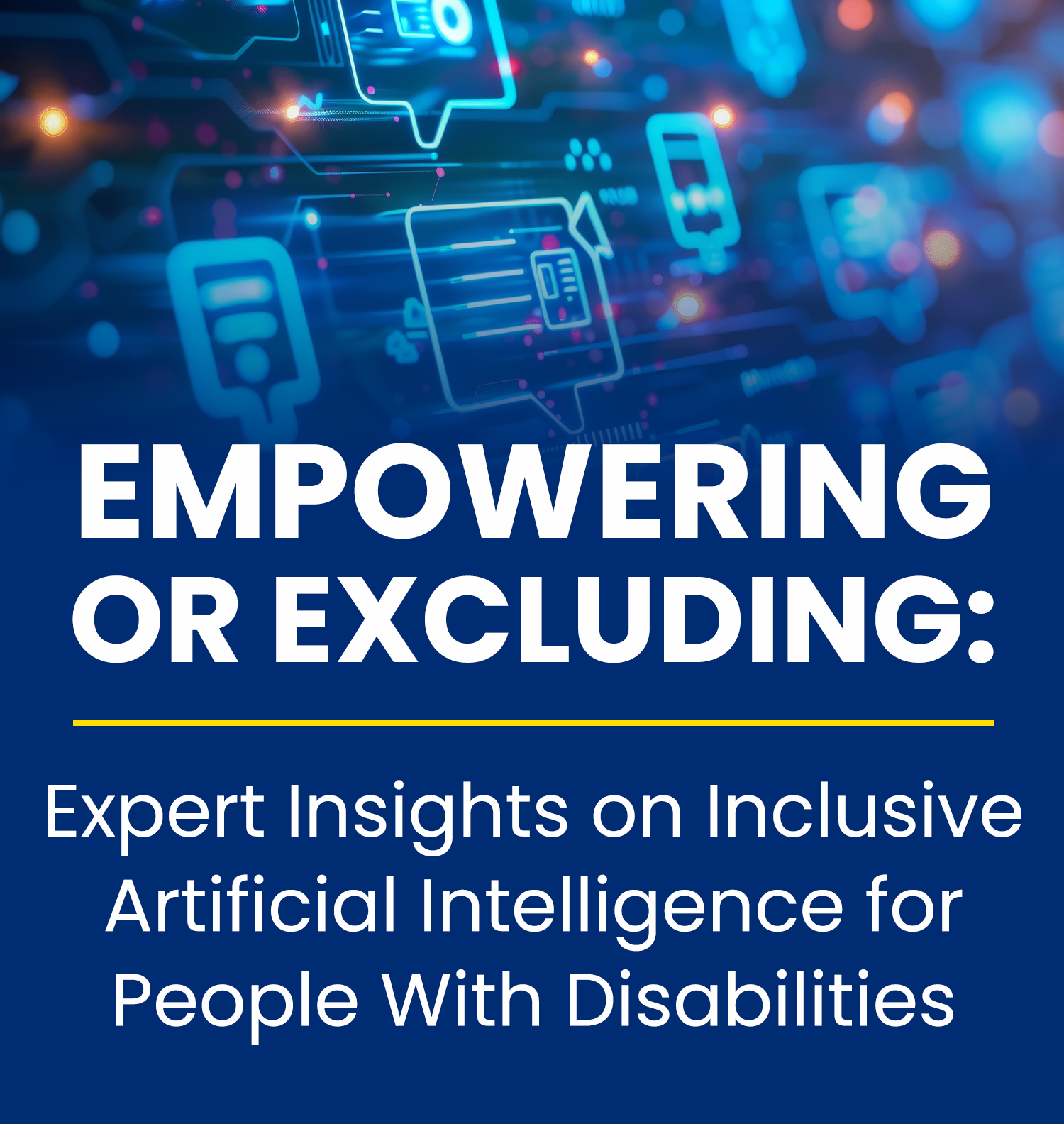
The report, “Empowering or Excluding: Expert Insights on Inclusive Artificial Intelligence for People with Disabilities,” synthesizes the opinions of 32 experts spanning the technology industry, government, and relevant nonprofits.
The opinions were captured through a series of in-depth interviews and multiple follow-up surveys to help gain consensus among the group. Feedback identified over 30 key areas of agreement, which helped develop the core principles the report lays out. These principles seek to inform AI developers, advocates, and policymakers on priorities that should be considered around the ongoing development of AI technology.
“The experts we approached gave us a deeper understanding of the risks that could stand in the way,” added Enyart, “and at the same time, they shined a light on how AI can be a catalyst for access and inclusion for those of us living with a disability.”
Access the report online at www.afb.org/AIResearch.
What's on the Horizon
AFB Scholars Program Opens Doors to Success
This past January, the American Foundation for the Blind (AFB) announced its newly formed AFB Scholars Program, which will offer a new series of sizable scholarships for legally blind undergraduate and graduate students across the country for the 2025-2026 school year.
“These new scholarships will make it possible to turn the dreams of many exceptional students who are blind into a tangible reality,” said Eric Bridges, AFB president and CEO.

AFB Cornerstone
Guy Pepe, A Man of Faith
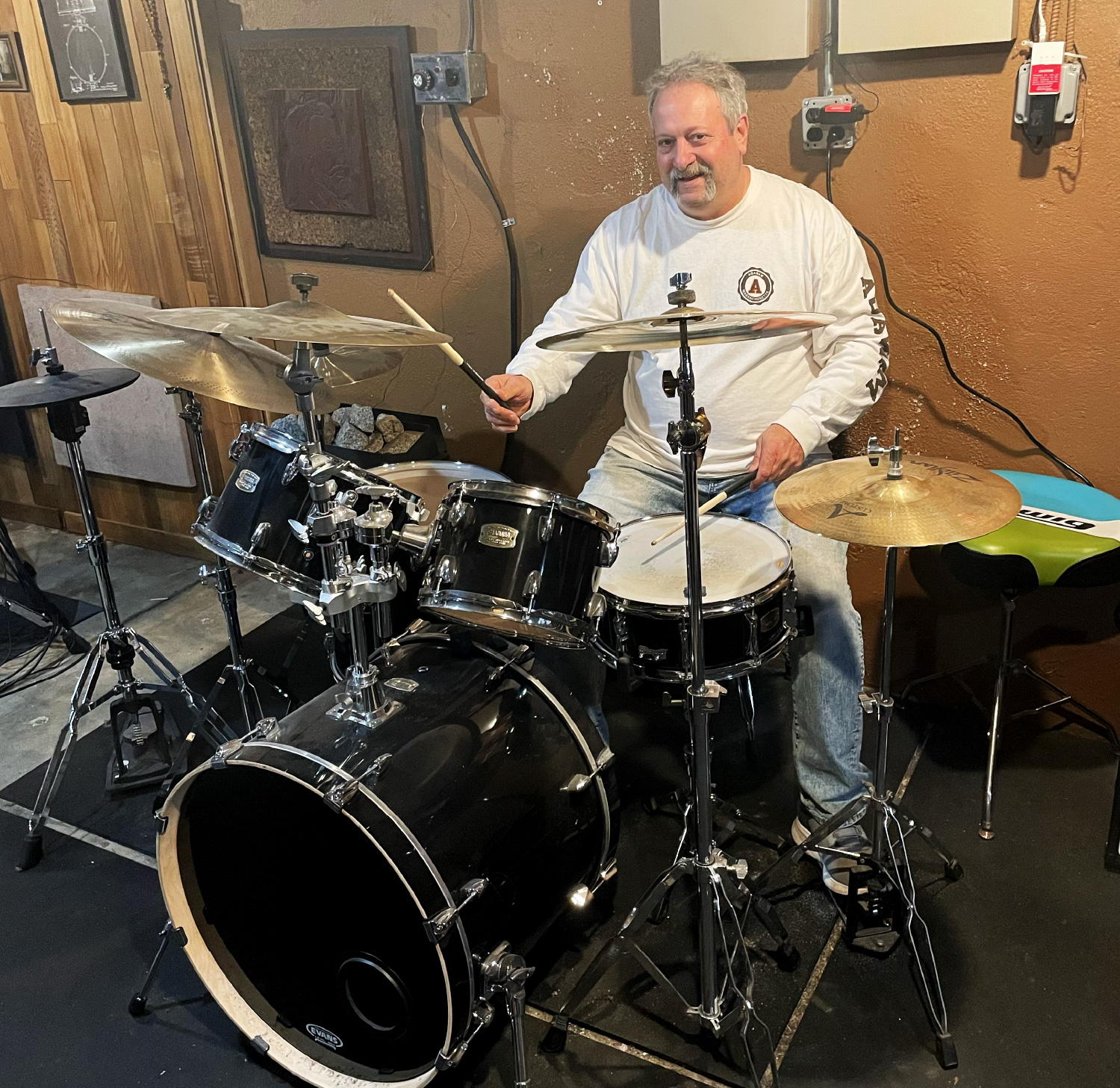
Charity comes in many forms. For Pepe, who has been a faithful supporter of AFB over the years, it is rooted in the fundamental origin of the word charity: “Caritas,” the Ancient Greek term given to gifts from the heart. And Pepe believes that his call to serve the blind is fostered by a burning desire in his heart fueled by his faith.
“I believe that Jesus Christ my Lord put it on my heart to help the lives of people who are blind or visually impaired,” said Pepe. “I know that my donations help with opportunities for people with visual impairments such as education, digital tools, technologies, and employment.”
According to Pepe, his support of the organization has allowed him to meet many impressive voices from the community. AFB thanks Pepe for his continued support, along with all who give through a heartfelt call to service.
Off the AFB Newsstand
Help Wanted: Become a JVIB Peer Reviewer
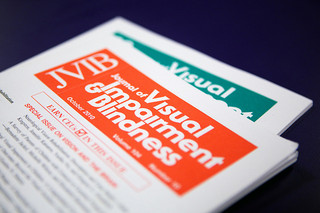
The journal’s peer reviewers are professionals with a wide range of expertise, including lived experiences as people who are blind or low vision. They identify a paper’s strengths and weaknesses and make suggestions on how an author can improve their work. If you are already busy in your professional role, rest assured that most reviewers are invited to review just one manuscript a year.
In 2024, 141 individuals volunteered their time as JVIB peer reviewers, one of whom stood out for the quality of her reviews. Tina Herzberg, professor and director of the Visual Impairment Program at the University of South Carolina Upstate, was recently honored as the 2024 JVIB Peer Reviewer of the Year.
If you are interested in becoming a JVIB peer reviewer, visit JVIB’s submission site, https://mc.manuscriptcentral.com/jvib, create an account, and indicate your interest by selecting the checkbox related to peer review on page three. Send questions to jvib@afb.org.
AFB Showcase
AFB Documentary “Possibilities” Receives Top Doc Award at GSFF
On March 29th, attendees at the Garden State Film Festival in Asbury Park, NJ, filled the theater steps from the world-famous Jersey Shore boardwalk to watch a screening of AFB’s documentary film “Possibilities.”
The screening was completely sold out, with over 215 attendees, and was well-received by the audience. In fact, it was so highly regarded that the following evening, the film’s director, Bill Sarine, accepted the Broader Vision Documentary Award for the top full-length documentary film at the festival.
